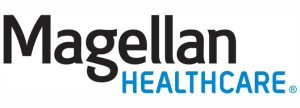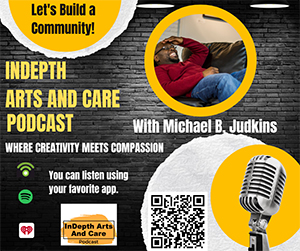By: Ivana Romeo and Stacey Ricca, Care Managers, Magellan Behavioral Health of Pennsylvania
Battling addiction is a complicated matter that often involves many different pathways to recovery. Besides traditional clinical treatment, individuals are also strongly encouraged to seek support through peer led programming. These programs provide individuals with a sense of community, peer connection and a safe place to work through potential struggles with the help of individuals who have been down a similar road.
To discuss this subject with some familiarity, let’s first identify several options for recovery supports outside of the 12-step system. For those unfamiliar, 12-step programming (Alcoholics Anonymous) was established in 1938 as a peer support group program. The program’s basic premise is that people can help one another achieve and maintain abstinence from alcohol and drugs, but that healing can only happen when one surrenders to a higher power.
Some of the other popular options for recovery programs are:
- SMART Recovery (Est. 1994): stands for “Self-management and recovery training.” These self-help groups are based on self-empowerment rather than surrendering to a higher power. They utilize techniques from Cognitive Behavioral Therapy, Motivational Enhancement Therapy and Relational Emotive Behavioral Therapy to target problematic behaviors and find solutions for change. SMART recovery is centered on a 4-point system: 1. Building and maintaining the motivation to change, 2. Coping with urges to use, 3. Managing thoughts, feelings, and behaviors in an effective way without addictive behaviors and 4. Living a balanced, positive, healthy life. They do not use labels of ‘alcoholic/addict.’
- LifeRing Secular Recovery (Est. 1997): focuses on meeting people where they are. It assumes that each person has a ‘Sober Self’ and ‘an Addict Self’ and it focuses on strengthening one’s ‘Sober Self.’ Like SMART recovery, it does not focus on a higher power but rather harnessing individuals’ internal strength to make the necessary changes.
- Women for Sobriety (WFS) (Est. mid 1970s): was founded by Dr. Jean Kirkpatrick who is a recovering alcoholic and whose needs were not being met by AA. It is designed for women due to unique emotional, physical, and spiritual needs that women have in recovery. It utilizes positive reinforcement, cognitive strategies for positive thinking, letting the body help via relaxation techniques, specialized diet and physical exercise, and group support.
- Refuge Recovery: developed from Noah Levine’s 2014 bestselling book called “Refuge Recovery.” It is built on Buddhist principles of mindfulness, and a belief that individuals possess inner strength to free themselves from their ailments.
- Recovery Dharma: is another Buddhist path to recovery and describes itself as a “peer-led, grassroots, democratically structured organization.” Groups are there to support everyone on their path to recovery via Buddhists practices and principles.
The advantage that the 12-step program has over the other programs is that it has been around the longest and has paved the way for most of the newer ones developed in later years. Meetings are available internationally, in different languages, both in person and via online. There is literature available that describes the program and walks the person through the 12 steps that they need to complete to gain a better understanding of themselves and their recovery process. It also has a social aspect, in that, the program strongly encourages individuals to connect with another person who has been in recovery to act as a guide and reference point. Other programs listed above are not as widely known and developed, therefore they are not as easy to access.
Magellan Behavioral Health of Pennsylvania supports our members’ choice and empowers them to identify and take part in whichever peer-led program they find the most useful in achieving long-term sobriety. All options mentioned above have helped many people achieve and maintain sobriety. However, due to some vast differences in their principles, it is best that one seeks the program which fits their own values and beliefs.
It is important to remember that each of us is a unique individual with unique experiences and unique motivations to achieve goals we have set for ourselves. With that said, reaching and maintaining sobriety needs to be an individual mission based on a person’s own strengths and needs. What works for one person may not work for another. This is true for different treatment methods as well as recovery programs. Some choose to engage in religious or spiritual activities, family obligations or hitting up the local gym. Others may choose to begin various types of medication assisted treatments and therapy. There is no right and wrong way to work on your recovery. For most, it tends to be a combination of multiple approaches simultaneously and may take some time for the individual to figure out what works best for them. Most people struggling with any form of addiction from substances, food, gambling and many others, could benefit from any of the self-help programs mentioned above. For anyone to fully thrive in their pursuit of long-term sobriety, they first need to identify a self-help program that closely aligns with their needs and beliefs. Just as with working towards any long-term goal, an individual must remain invested and want to work on the issue to have lasting change. Magellan believes in educating our members on all the different options available to them and encouraging them to choose the path that they think will most benefit themselves.
Information provided to TVL by:
Aubrey Proud
Director, Communications and Community Relations
Magellan Behavioral Health of Pennsylvania
Magellan Healthcare Division
https://www.magellanhealthcare.com/
https://www.magellanofpa.com/






